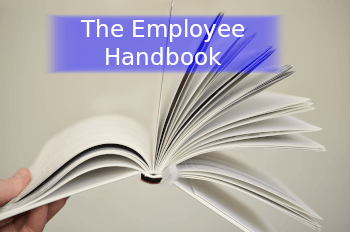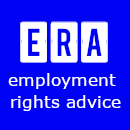The Employment Rights Advice Blog
 Articles, news and updates on employment law in Ireland
Articles, news and updates on employment law in Ireland
for employees and employers
____________________________________________________________________________________________________________________________________________________________________________________________________________________________________________________________________________________________________________________________________________________________________________________________________________________________________________________________
Round the clock employer service
24 hour employment law advice
 Getting advice in time can help stop an employment law problem becoming an expensive claim
Getting advice in time can help stop an employment law problem becoming an expensive claim
- Unlimited FREE calls to our employer advice line
- Call us about disciplinary matters, sacking an employee, hiring a new staff member, WRC inspection, employee handbook, bullying at work, sick leave, any employment law matter dealt with in the Workplace Relations Commission.
- Avoid calling someone who bills by the expensive hour. As a member you can call as often as you want and get the advice you need, without worrying about getting a bill every time.
- As an employer, problems can arise at any time. It's comforting to know that we are there when you need us.
- As a member you can be sure that you are getting timely, straight forward, advice from an expert with over 35 years experience in Irish employment law.
Chat with us today about becoming a member. You'll be glad you did.
We are currently offering a free employment law audit to each employer who contacts us, whether they use our service or not.
Arrange a call back now using the orange Tell Me More button below.
Spread the knowledge. If you found this article useful, please like and share using any of the social buttons below
The Employee Handbook
What every employer needs to know about the employee handbook
 The Employee handbook is also known as company handbook, staff handbook, employee manual or policy manual. It contains a lot of the information which the employer wishes to convey to the employee about company policies and procedures. It should be viewed as a positive contribution to workplace harmony. It facilitates consistency, clarity and equality. By issuing an employee handbook to every worker, the employer helps to establish the company way of doing things. The employee knows that there is a system for dealing with most problems which can arise in the workplace and that helps foster a climate of caring, which in turn helps productivity.
The Employee handbook is also known as company handbook, staff handbook, employee manual or policy manual. It contains a lot of the information which the employer wishes to convey to the employee about company policies and procedures. It should be viewed as a positive contribution to workplace harmony. It facilitates consistency, clarity and equality. By issuing an employee handbook to every worker, the employer helps to establish the company way of doing things. The employee knows that there is a system for dealing with most problems which can arise in the workplace and that helps foster a climate of caring, which in turn helps productivity.
If I have already given written contracts of employment to all staff, what use is an employee handbook?
That’s a fair question. Under current Irish employment legislation you must issue written terms of employment to a new employee within two months of commencing work. All employees must have read and confirmed this in writing within 28 days of starting work. A good way to achieve this is to issue an employee manual at the same time as an employment contract. The employment contract covers the essential terms of employment and takes precedence over the employee manual.
As a result of ongoing changes in Irish employment law, it is frequently necessary to up date policies and procedures. By keeping the employee handbook separate from the employment contract, it is easier to up date.
The employee handbook helps protect you against employment law claims and fines.
What is usually contained in an employee handbook?
The handbook usually starts with an introduction which mentions the company’s history, core values and expected behaviour. It then moves on to policies and procedures.
The following policies are essential and should be included in an employee handbook:
-
Data protection
-
Grievance and disciplinary
-
Sick leave and absences
-
Bullying & Harassment
-
Health & Safety
-
Equality
-
Hours of work
-
break times and rest periods
-
Email, internet and use of telecommunications
-
Right to search
-
Honesty
-
Confidentiality
-
Leave and benefits
Family orientated policies
The three policies which can be classified as family orientated are, maternity leave, paternity leave and parental leave. All three should be covered in your employee handbook. If they are not covered in your existing employee manual, you can download each policy , individually from our DIY Documents page here Go to the procedures tab and scroll to the policy you require. Better still download a new up to date Employee handbook, which contains all of the policies you need.
For peace of mind choose the expert review service.
It is vital that all staff read and agree with the employee handbook. It is especially important that your management level staff are familiar with, and follow strictly, company policies and procedures. Most unfair dismissal cases are lost because the employer failed to follow correct procedures. If you don't have an employee handbook, you are taking a risk with your business.
Received, read and understood
It is best practice to have a page for the employee to sign which states that they have received, read and understood the employee handbook. Failure to sign it can be a matter to consider when reviewing the employee’s performance during the probation period, where applicable.
I have had an employee handbook for over ten years am I still ok?
You should have your employee handbook reviewed by an expert in Irish employment law to see if it is still up to date. Many changes in various employment laws were introduced in Ireland over the last ten years, the most recent being the General Data Protection Regulations (GDPR) which commenced on the 25th May 2018.
I don’t have the time to keep an employee handbook up to date, what should I do?
Contact us. We provide a service which will review your existing manual and add any amendments necessary to keep it updated. If you do not have an employee handbook, we will discuss your needs with you and write a bespoke manual which reflects the needs and culture of your organisation. Just contact us using the orange Tell Me More button below. and we will get in touch with you.
Spread the knowledge. If you found this article useful, please like and share using any of the social buttons below.
The Good, The Bad and the law of employment references
Be careful what you refer to
 What is an employer’s duty when giving employment references?
What is an employer’s duty when giving employment references?
Does the employer have to give a reference?
Can I be negative in a reference?
Is there a policy I can implement in my business in relation to employment references?
Can I just give a short statement of employment ?
These are just some of the questions we are asked when the subject of giving a reference for a former employee is discussed.
In this article we outline the Good and the Bad of employment references for employers in Ireland
The Good:
-
Put it in a policy. Examine your company’s policies and procedures together with any employee manual. If there is not a reference to a policy on giving employment references, then you should obtain and implement one as soon as possible.
-
Decide who, within your business, deals with reference requests. Ensure that all management know who this is and that no one else should give a reference on behalf of the business.
-
Keep the reference within safe areas. Confirm the fact of employment, job title, what the employee’s duties and responsibilities were, and the dates of employment.
-
State that it is company policy to provide confirmation of the factual statement of employment only.
-
Stick to the facts. Avoid opinions.
-
Put a copy of the reference given on the former employee’s personnel file. You should also keep your own record of all references given, time, date and content.
-
Where work colleagues are asked for a reference, ensure that they mention clearly in the reference, that it is a personal reference only and does not constitute a reference on behalf of the business. This should be incorporated in your policy referred to above. Like with all policies it should be communicated to the relevant employees in an effective manner.
The Bad:
-
Getting personal. Avoid personal information, e.g. medical condition, political affiliation, trade union activity etc.
-
Sharing your opinions. Stick to the facts which can be proven. Your opinion may be wrong and damaging to your business. Remember an oral reference should be similar to a written one. Don’t ramble. Stick to the facts.
-
Giving random references. If you fail to follow the template laid out in your policy you are tempting fate. By giving a short reference to one employee and a long gushing reference to another, you may be setting yourself up to be sued.
The Law of employment references
The law affecting employment references is based on how it affects contract law other laws,and various pieces of employment legislation. There is no specific piece of legislation dealing exclusively with employment references.
Is there a legal obligation to give a work related reference?
In general, an employer is not under an obligation to give a reference. If it is standard practice in an industry to give a reference there may be an implied obligation to give a reference.
A duty of care to the employee
Where an employer decides to give a work reference, then the duty of care to the employee kicks in. If the reference contains false or misleading statements which causes the employee to incur financial loss, then they may be able to sue the employer. A future employer is owed a duty of care by the former employer if the latter provides a work reference.
A recent UK case Hinks v Sense Network (June 2018) gave useful indicators as to how an employer can successfully carry out its duty of care in the following manner:
-
To conduct an objective appraisal of facts and opinions about the employees
-
To ensure that any facts set out in the reference were true and any opinions were reasonably arrived at
-
If an opinion arises from an earlier investigation, to take reasonable care to see that there was a legitimate basis for the opinions
Interestingly enough, the case involved the giving of a comprehensive reference which included what the employee would regard as negative opinion. The court held that the statements made in the reference were more than amply supported. The employer won on this occasion because the reference was based on facts which could be proven.
There is an increasing practice among employers in Ireland of providing a simple statement of employment as outlined herein. This helps to avoid the consequences which may arise from a more detailed reference.
How can I contact you?
If you want further details or help with any area of employment law in Ireland you can contact us using the orange Tell Me More button below. We will contact you at a time that suits.
Spread the knowledge. If you found this article useful, please like and share using any of the social buttons below.
Equality in the Workplace
An Employer’s Guide
 In this article we look at how an employer in Ireland can promote equality at work and avoid discrimination and breaches of the Employment Equality Acts. We examine the definition of Equality at work. We offer suggestions to the busy employer on how to avoid falling foul of the law.
In this article we look at how an employer in Ireland can promote equality at work and avoid discrimination and breaches of the Employment Equality Acts. We examine the definition of Equality at work. We offer suggestions to the busy employer on how to avoid falling foul of the law.
How is equality in the workplace defined ?
The Employment Equality Acts 1998 – 2015 provide the legal definition of discrimination in the workplace. They list nine grounds under which discrimination is prohibited. The Employment Equality Acts define discrimination as treating one person less favourably than another based on any of the nine grounds (See below). The equality legislation looks at whether a person has been treated less favourably at work than another person in a similar situation. That other person is called a comparator. They can in certain circumstances be theoretical where an actual comparator is not available.
Discrimination can be direct or indirect . Indirect usually occurs where a policy is introduced which has an unintended negative impact on one employee or group of employees on one of the nine grounds. Direct discrimination can be more apparent and intentional.
Vicarious liability
As an employer you have a general duty of care towards your employees. Under Employment Equality law in Ireland you have a duty to protect your employee from acts of discrimination or harassment from you, other employees and third parties , eg. contractors, suppliers, customers. As well as having an active equality policy in the workplace, you should ask third party suppliers and contractors if they have such a policy in place. If they haven’t such a policy, then you could be held to be vicariously liable for the actions of third party employees. If you haven’t one in place, then you will be held liable for the breaches of equality legislation committed by your employees.
For more on vicarious liability see
Equality in practice
The thing about discrimination is that often the perpetrator can be blind to the fact that their actions are discriminatory and causing pain and suffering to the victim. That is why education and training is important. Every action which you take as an employer, to create an awareness and understanding of discrimination helps reduce the likelihood of you being vicariously liable for the actions of your employees when they breach equality employment legislation. Training does not have to be complex, but it should be ongoing, so as to create and maintain a constant awareness of the effects of discrimination in the workplace.
Equality Policy
The aim of an Equality policy regarding employment should be to ensure that no employee or job applicant receives less favourable treatment on any grounds which cannot be shown to be justified. This covers all areas of the workplace including, Recruitment, Selection, Training, Promotion, Pay and Employee benefits, Grievance and Disciplinary procedures and Terms and Conditions of Employment. If you do not have an Equality at Work policy, you are putting your business at risk of a substantial claim. If you have had a policy in place for a number of years, it may be a good time to have it reviewed to check that it is up to date,. Employment law in Ireland is constantly changing.
The law on Equality in Ireland
The Employment Equality Acts 1998 – 20015 prohibit discrimination in the workplace. The equality llegislation covers all areas of work, including recruitment, promotion, pay, conditions of employment, training, experience. It outlines the nine grounds under which discrimination is unlawful
-
Gender. This includes a man, a woman or a transsexual/transgender person
-
marital status.
-
family status
-
sexual orientation
-
religion
-
age
-
disability
-
race
-
membership of the traveller community
The main aims of the Acts are as follows:
• To promote equality;
• To prohibit discrimination across the nine grounds (some exemptions
might apply);
• To prohibit sexual harassment and harassment;
• To prohibit victimisation;
• To require reasonable accommodation for people with disabilities in
relation to access, participation and training in employment;
• To allow positive action measures to ensure full equality in practice across
the nine grounds.
Other important pieces of legislation affecting equality in the workplace include:
- Maternity Protection Acts 1994 and 2004
- Adoption Leave Acts 1995 and 2005
- Parental Leave Acts 1998 and 2006
- Equal Status Act 2000 – 2012.
- Carer’s Leave Act 2001
- Protection of Employees (Part-time Work) Act 2001
- Protection of Employees (Fixed-term Work) Act 2003
- National Minimum Wage Act 2000
- Unfair Dismissals Acts 1977 to 2007
- Protection of Employees (Temporary Agency Work) Act 2012.
- Criminal Justice Act 2011
- Protected Disclosures Act 2014
The Equal Status Act 2000 – 2012 brings equality to users of a service or product. Businesses must take into account the Equality rights under the acts of customers, client and end users .
The employer’s defence to harassment
The equality legislation provides a defence for an employer who can show that they took such steps as were reasonably practicable to prevent the harassment from taking place and to undo the effects of it.
In deciding whether or not the employer took reasonable steps an adjudicator will look to see if there was a code of practice for dealing with Harassment in the workplace and how effectively it was promoted and implemented.
As an employer you should have a code of practice dealing with harassment and sexual harassment at work. If you don’t then you will be exposed when a claim is made.
For more on harassment see
For more on sexual harassment see
Positive Action
The acts allow for employers to discriminate in a positive way to promote full equality in practice in the workplace.
Exemptions to the Employment Equality Acts
There are exemptions from the Employment Equality Acts. Some can apply to all employment types. Others apply to certain types of employment or are covered under positive action.
Applicable to all employment types
Capacity and competence. If the person cannot do the job due to incompetence or incapacity, then it is not discrimination to decide not to hire them. Consider carefully however the question of making reasonable adjustments to enable someone with a disability to do the job.
Necessary qualifications. You can reject job applicants who do not have the necessary, educational, technical or professional qualifications for the job.
Employee family based benefits. An example would be childcare facilities.
Applicable to certain types of employment
Officers of the State may be required to achieve special requirements, e.g. Irish Citizenship etc.
Employment in another person’s home.
The provision of a private service in a person’s home is not covered by the Employment Equality Acts.
Religious, educational and medical institutions
This is to protect the religious ethos of the institution, where it exists. Breach of equality on any of the nine grounds is prohibited.
The nine grounds exemptions
Gender ground
Positive discrimination in favour of female employees who are pregnant or breastfeeding is allowed and does not constitute discrimination on the basis of gender under the Employment Equality Acts.
Age ground
If the difference in treatment can be objectively justified then it does not constitute inequality.
Where legislation allows a distinction to be made among workers, then a breach of the Employment Equality Acts does not take place.
Steps an employer can take
- Examine your policies and procedures to check that you have a policy on equality in place, together with a code of practice dealing with harassment and sexual harassment.
- If you haven't up to date policies then get them as soon as possible to minimise the risk of being sued and to promote a caring workplace which reflects on company profits ultimately.
- If you haven't the time to devote to this then contact us and we will arrange it for you.
Is there a DIY solution to drafting an Equality Policy to suit my needs ?
Yes. We advise you to get help from our experts. However if you want to do it yourself you can download our updated Equality Policy document, together with our simple guide to completing it . You can opt to have the completed document reviewed by one of our experts for peace of mind. Just click on the blue button to view our selection of employment law documents to help reduce your legal expenses.
Where can I get an expert to set up policies and procedures for dealing with my responsibilities under Irish Employment Equality legislation ?
We understand that most employers are busy meeting the needs of their customers/clients. If you want to set up and maintain an Equality at Work policy but find that you do not have the time to devote to it, don't despair. Help is at hand. We will work closley with you to prepare an Equality at Work policy to suit your individual needs. We will be there to assist in its implimentation too. We have over thirty years experience of employment law in Ireland. You can contact us using the orange Tell Me More button below.
Spread the knowledge. If you found this article useful, please like and share using any of the social buttons below.
Latest Employee Blogs
- Performance Improvement Plan or Exit Strategy?
- Whistleblower awarded five years salary by Workplace Relations Commission
- Unlawful COVID-19 pay cut
- Unfair Redundancy Case
- How to raise a problem at work
- Trade Secrets and Whistleblowing
- Is your fixed term contract valid?
- What is it like to bring an unfair dismissal claim?
- Employer relocation
- End of P45
Latest Employer Blogs
- Changes to probationary period
- Redundancy Update
- COVID-19 Vaccination Data in the workplace
- Statutory Sick Pay Scheme
- The Right to Disconnect
- Covid-19 Can I use lay off and short time to cope with Covid-19 ?
- Covid-19 (The Coronavirus) Tips for employers
- Social Media Monitoring in the Workplace
- Using 3rd party CCTV footage
- Do I need a Data Protection Officer ?









